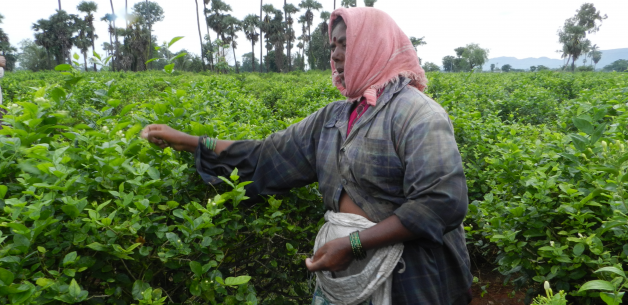*Photo credit to scroll.in
The World Bank’s independent Inspection Panel released a report today detailing the commitments made by World Bank management to prevent impoverishment, coercion, and retaliation against critics in the process of constructing a new mega-city in southern India. The World Bank and the new Asian Infrastructure Investment Bank (AIIB) are considering providing a combined $500 million in financing for the Amaravati Sustainable Capital City Development Project, which will affect over 120,000 people living in the area that will become Amaravati, the new capital city for the state of Andhra Pradesh.
In May, the Inspection Panel received a complaint from farmers in the region, who alleged that they and others have experienced harassment and intimidation as a result of their objections to giving up their land for the project, in violation of World Bank policy. The complaint also raised concerns about impoverishment of disadvantaged residents of the Amaravati region, particularly those who had reliable incomes as farm laborers but are now employed sporadically and struggle to support their families. The AIIB, nearly two years after it began operations, does not have an independent grievance mechanism that reviews concerns from project-affected communities about compliance with its policies.
“Projects must comply with World Bank and AIIB environmental and social policies prior to approval of financing,” said Elizabeth Summers, Infrastructure Policy Manager at Bank Information Center. “The commitments made by World Bank management to free and open consultations are particularly important in light of the closing space for civil society and attacks on human and environmental rights defenders around the world. The next step is to hold the World Bank accountable for its commitments to address the harms posed by this project before providing financing for it.”
World Bank documents state that the Amaravati project will support “pro-poor infrastructure,” and AIIB documents state that the project will “create jobs for existing resident villagers by upgrading their skills.” A letter sent by over 40 leading Indian activists to the World Bank Board of Executive Directors questioned the project’s ability to deliver on these promises, and called on the World Bank and AIIB to end their involvement with the project. The activists’ letter and the complaint echo longstanding concerns about the “massive scope of physical and economic displacement” caused by World Bank projects.
In the report released today, the Inspection Panel found grounds to further investigate the potential harm that the Amaravati project risks inflicting on people living in the project area. In response, World Bank management committed to hiring experts to complete additional assessment studies prior to the Bank’s approval of financing for the project. The Inspection Panel will defer its investigation for six months, pending the outcome of those assessments.
The Panel’s report “emphasizes the importance of providing a safe space for airing grievances and concerns” about the project. In early July, Indian media reported that government authorities threatened to retaliate against the complainants to the Inspection Panel. Neither the World Bank nor the AIIB responded publicly to those threats. In the official World Bank response to the complaint, the Bank’s management commits to “[c]onvey to the [Indian] Government that proactive and open stakeholder engagement, free from coercion, is a prerequisite for Bank support for a project.”

